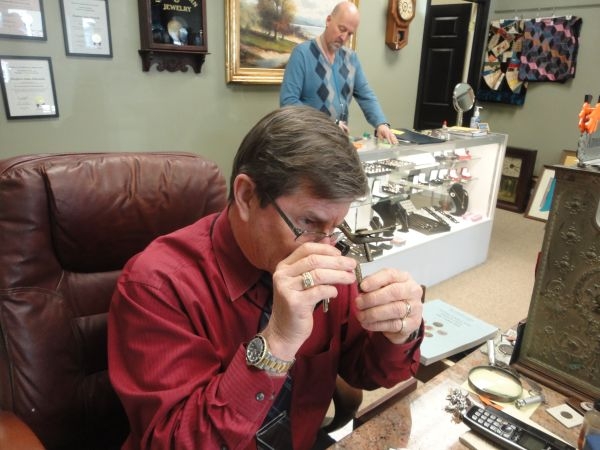
State Police say last week’s arrests in a case involving the theft of more than $200,000 worth of coins from an Alburgh home were the result of a recent law intended to help them track down stolen jewelry.
But authorities say some of the area’s cash for gold dealers are ignoring the law and making it easy for thieves to sell stolen jewelry.
State Trooper Benjamin Katz says the increasing number of cash for gold stores is a sign that trafficking in stolen jewelry is a rising problem.
"We’ve had a large number of them open within the past year," says Katz. "I believe there’s eight now in the Chittenden county area and there’s a direct correlation between the number of property crimes and the number of these type of stores."
Katz helped craft a law passed last year that that requires businesses paying cash for jewelry to keep a record of the identities of the sellers and wait 10 days before shipping it. But he says some of the dealers aren’t following the law.
In November, an undercover officer posing as a seller approached an employee at the Gold Collect kiosk in a South Burlington mall. The officer told the employee that the gold he was selling was stolen. When the employee allegedly offered to buy it anyway, he was arrested.
Gold Collect is owned by a New Jersey firm which continues to operate the kiosk. A new employee named Imani James was on duty when we visited. James wasn’t sure of all of the law’s provisions but he says his New Jersey boss plays by the rules.
"We have company policies," he says." We take pictures of the ID, we write down driver’s identification number on the receipt."
State police say they targeted the Gold Collect kiosk after several thieves told them they had sold stolen jewelry there.
Trooper Katz says it’s usually pretty clear to a dealer when the jewelry being sold is stolen.
"If 19 year old kids comes in with a pillowcase full of jewelry, I would really hope that even though the jewelry may be worth a lot of money, that they’re not buying it – that they’re stalling and calling their local police," Katz says.
The owner of another business that trades in jewelry as a sideline told VPR that when he’s suspicious merchandise is stolen he sometimes quotes a lower than acceptable price then calls police when the seller leaves the store. He declined to speak on tape for fear of being targeted by thieves.
Vermont Coin And Jewelry in South Burlington is a seven year old business that purchases jewelry, coins and other heirlooms. There was a constant stream of customers coming through the door on one recent weekday.
Owner Steve Edwards says because of the volume of business he does, the law’s 10 day waiting period is a financial hardship.
"From a financial point of view we have all this money tied up," Edwards explains. "And [because of] the volatility of the gold and silver markets, in that 10 day period things can change 5 percent or 10 percent easily. We buy at 2 percent – that’s what we’re trying to make on it. So if you hold it for 10 days and it goes down 5 percent, where are we?"
Edwards says he keeps careful records of the jewelry he buys, but if the seller is someone he knows, he won’t hold on to it for the required 10 day period. He doesn’t think the law does much good, anyway.
"It might be 10 percent better than it was before, but 10 percent is not good enough," he says.
Edwards say thefts of gold and other precious metals should be investigated more vigorously by police. He also wants a database for dealers that lists jewelry reported stolen.
But authorities say the Alburgh case is proof the new law is helping significantly.
They say some dealers themselves are a part of the problem because some are looking the other way when stolen jewelry is brought to them – instead of observing the new law.